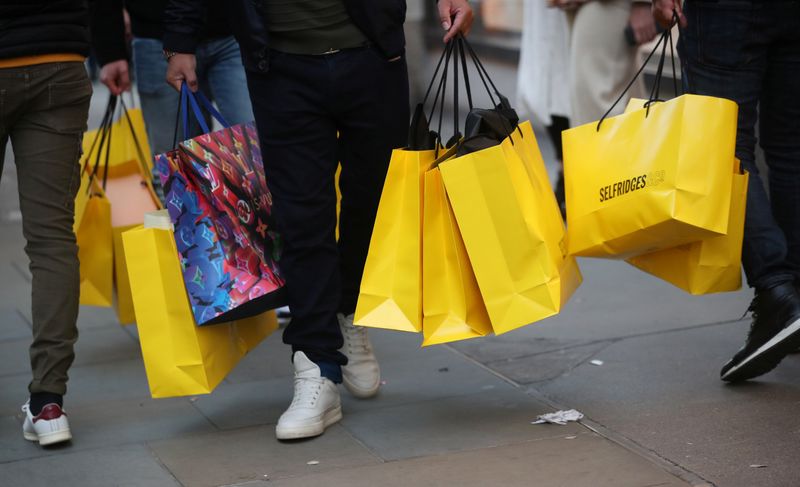LONDON (Reuters) - British companies hired permanent staff in January at the fastest rate in just over a year and shops reported the biggest increase in sales since 2014, according to two surveys which added to signs of a post-election bounce in the economy.
The index of permanent job placements from the Recruitment and Employment Confederation and accountants KPMG hit its highest level since December 2018 at 52.3, up from 51.9 in December.
The survey chimed with other signals of the economy perking up in early 2020 following Prime Minister Boris Johnson's sweeping election win on Dec. 12, after a near standstill in late 2019.
Last week, the Bank of England decided against cutting interest rates as it waited to see if the signs of a recovery translate into a pickup in economic growth.
"It's good to see that businesses have grown in confidence over the past two months and taken the opportunity to restart hiring," REC chief executive Neil Carberry said.
There were also some less positive signals in REC's survey.
Starting salaries for permanent staff grew at the slowest rate since July 2016, immediately after the Brexit referendum.
The REC report also showed temporary staff hiring fell for the first time since 2013, possibly reflecting concerns about reforms aimed at tackling tax avoidance that are likely to affect temporary workers.
A separate survey published on Friday showed British retailers had their biggest sales increase in six years in January, helped by the election and price-cutting.
Accountancy firm BDO said its High Street Sales Tracker found sales jumped by 5.7% last month, the biggest annual rise since January 2014, with gains seen across all sectors.
Until now there has not been a clear sign of a post-election improvement in the mood of consumers similar to the increase in confidence among businesses.
BDO warned that the January sales surge might not last.
"This may be a false dawn in terms of a high street recovery," Sophie Michael, national head of retail and wholesale at BDO, said.
There were signs that retailers were sitting on high levels of stock and that buying orders had fallen again, suggesting that discounting was driving sales, Michael said.

"February will show whether consumer confidence has got a toehold in some kind of recovery for retail," she said.